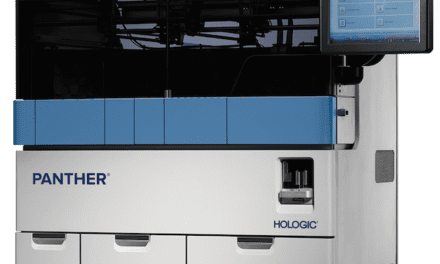The Rockefeller Foundation has reached an agreement to extend Project Access Covid Tests (Project ACT), a program delivering free at-home COVID tests to at-risk communities, for four more months to meet the states’ ongoing testing demand.
Funding commitments for Project ACT since its launch last year now total $33.2 million from Illinois, Kansas, Maine, Michigan, New Mexico, and North Carolina.
Project ACT, a turnkey public-private partnership, allows states to pay below-market costs for tests through agreements negotiated by RF Catalytic Capital Inc. (RFCC), The Rockefeller Foundation’s public charity. RFCC manages the negotiations with the private sector for all aspects of test production, ordering, logistics, and delivery, allowing states to continue to receive an all-in price of $6.23 per test, including home delivery, through partnerships with Amazon Web Services and CareEvolution, at about half the cost of the average U.S. retail price of $12 per test. The program has already delivered more than 4.5 million tests to households in its first year.
“We’re extending Project ACT because it’s proven to be extremely efficient at delivering free tests to the Americans who need them most, and because state health departments tell us they need it to continue to meet their ongoing testing demand,” says Mara Aspinall, professor of practice at Arizona State University’s College of Health Solutions, and Advisor to The Rockefeller Foundation. “As new highly transmissible variants of Covid-19 continue to evolve, we know that testing is the most effective tool we have to empower Americans with the information they need to stay healthy.”
The six states currently participating in the program requested to continue Project ACT as the demand for tests in these states remains strong. The Rockefeller Foundation provided the initial $7.45 million in January 2022 to pilot Project ACT, and in June 2022 expanded the program, with RFCC serving as the cost aggregator for states to pool their resources. The existing agreement, which was set to expire at the end of February, will now continue through June 2023.
“Over the past year, Project ACT has shown that public-private partnerships can deliver positive public health outcomes nimbly and efficiently,” says Dominick J. Impemba, treasurer and chief financial officer, The Rockefeller Foundation. “States are paying below-market prices and tests are being delivered quickly — from the day states sign up to participate, we’re able to set up online ordering, start processing orders, and deliver tests to mailboxes in under two weeks.”
State health departments determine how many tests to purchase to ensure residents of target communities have access to tests. Target communities are those where the risk of contracting COVID has been higher due to geographic challenges as well as structural and racial inequities.
The most recent CDC data shows both hospitalizations and deaths from COVID have been higher for Black and Latino Americans. Health departments identify these communities based on their own criteria, informed by the U.S. Centers for Disease Control and Prevention’s Social Vulnerability Index, combined with state data on COVID burden.





